Related Research Articles
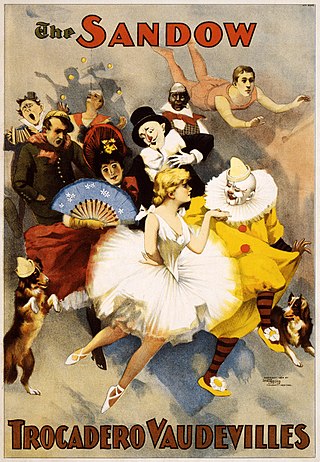
Vaudeville is a theatrical genre of variety entertainment which began in France at the end of the 19th century. A Vaudeville was originally a comedy without psychological or moral intentions, based on a comical situation: a dramatic composition or light poetry, interspersed with songs and dances. It became popular in the United States and Canada from the early 1880s until the early 1930s, while changing over time.
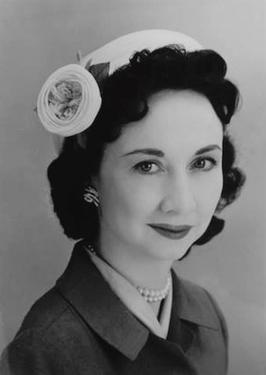
Dorothy Mae Kilgallen was an American columnist, journalist, and television game show panelist. After spending two semesters at the College of New Rochelle, she started her career shortly before her 18th birthday as a reporter for the Hearst Corporation's New York Evening Journal. In 1938, she began her newspaper column "The Voice of Broadway", which was eventually syndicated to more than 140 papers. In 1950, she became a regular panelist on the television game show What's My Line?, continuing in the role until her death.
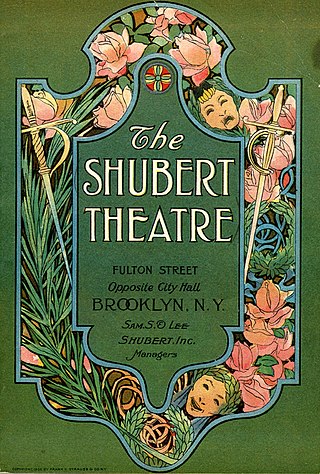
The Shubert Organization is a theatrical producing organization and a major owner of theatres based in Manhattan, New York City. It was founded by the three Shubert brothers — Lee, Sam, and Jacob J. Shubert — in the late 19th century. They steadily expanded, owning many theaters in New York and across the United States. Since then it has gone through changes of ownership, but it is still a major theater chain.

The Palace Theatre is a Broadway theater at 1564 Broadway, at the north end of Times Square, in the Midtown Manhattan neighborhood of New York City. Designed by Milwaukee architects Kirchhoff & Rose, the theater was funded by Martin Beck and opened in 1913. From its opening to about 1929, the Palace was considered among vaudeville performers as the flagship venue of Benjamin Franklin Keith and Edward Franklin Albee II's organization. The theater had 1,648 seats across three levels as of 2018.

Herbert Arthur Chamberlayne Blyth, known professionally by his stage name Maurice Barrymore, was an Indian-born British stage actor. He is the patriarch of the Barrymore acting family, and the father of John, Lionel and Ethel.

Daphne Pollard was an Australian-born vaudeville performer and dancer, active on stage and later in American films, mostly short comedies. Between 1928 and 1935 she had almost 60 screen credits.

Anna Rebecca Pennington was an American actress, dancer, and singer who starred on Broadway in the 1910s and 1920s, notably in the Ziegfeld Follies and George White's Scandals.

Cecilia Loftus was a Scottish actress, singer, mimic, vaudevillian, and music hall performer in the late 19th and early 20th centuries.
Dream Girl is a 1945 two-act comedy by Elmer Rice, with a large cast, multiple sets, and quick pacing. It depicts a day in the life of a daydreaming bookstore manager, whose vivid fantasies form much of the play's action. The work makes great demands on the actress playing this part, as she is on stage constantly, must make costume and mood changes while jumping between sets, and delivers long soliloquies and a Shakespearean speech. According to some reviewers, her spoken lines were the longest female part known up to that time, nearly as long as Hamlet. The dream fantasies prompted comparison to the short story "The Secret Life of Walter Mitty", but critics at the time more often suggested the play Lady in the Dark as an influence.
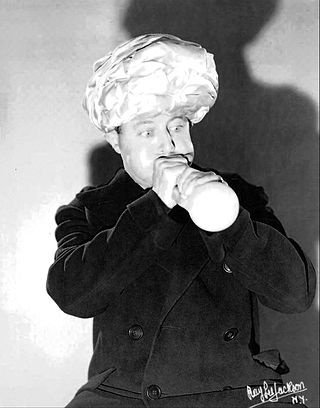
Joe Cook was an American vaudeville performer. He was a household name in the 1920s and 1930s as one of America's most popular entertainers, and he headlined at New York's famed Palace Theatre. After appearing on Broadway, he broke into radio performance.
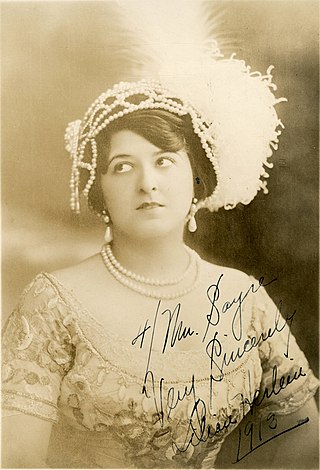
Lillian Herlein was an actress and singer in theater and vaudeville in the early 20th century. In vaudeville, she was sometimes known more for display of her figure than for the quality of her performances.

Ethel Jackson was a United States actress and comic prima donna of the late 19th and early 20th centuries. She appeared in Broadway theatrical productions, creating the title role in the original Broadway production of The Merry Widow.

Paulina Clarissa Molony, known professionally as Saharet, was an Australian dancer who performed in vaudeville music houses as well as in Broadway productions in the United States as well as in Europe, earning considerable fame and notoriety.

Lillian Lee was a stage actress in New York City beginning in the early 1880s. She was in the cast of the original Ziegfeld Follies in 1907.
Me and Molly is a three-act play with eight scenes by Gertrude Berg, based on Berg's long-running radio drama The Goldbergs. It has a large cast, one setting, and moderate pacing. It is a domestic situation comedy, bordering on soap opera, as Jake Goldberg tries to start his own business while his family adjusts to life in a new apartment.

Ruth Sato (1904–1992) was a Broadway chorus dancer, gossip columnist, musician promoter and nightclub manager. She was known as the first Japanese chorus girl on Broadway, where she worked for 20 years. She worked for about ten years as a gossip columnist and musician promoter and for 25 years managing Jazz, Ltd., a Chicago Dixieland jazz nightclub, with her husband, Bill Reinhardt.

Blanche L. Merrill was a songwriter specializing in tailoring her characterizations to specific performers. She is best known for the songs she wrote for Fanny Brice.
Louis Sobol was a journalist, Broadway gossip columnist, and radio host. Sobol wrote for Hearst newspapers for forty years, and was considered one of the country's most popular columnists. Sobol wrote about celebrities during the years when well-known columnists themselves became celebrities.

Louise Payton Heims Beck, sometimes referred to as Mrs. Martin Beck, was an American librarian who became a vaudeville performer and the wife of theatre impresario Martin Beck. She assisted her husband in his theatrical enterprises until his death in 1940, after which she took over the management of his eponymous Broadway theatre. Along with Antoinette Perry and several other women, she co-founded the American Theater Wing (ATW) in its revived and revised version in 1940. She served as one of the directors of the ATW in its early years, and played a critical role in establishing both the Stage Door Canteen during World War II and the Tony Awards in 1947. She was chairperson of the governing board of the Actors' Fund of America from 1960 until her death in 1978.
Anna Appel (1888–1963), was a Romanian-born American stage and film actress, known for her works in the Yiddish language. She was active in New York City for over 50 years in Yiddish theatre, and Yiddish cinema.
References
- 1 2 "US Census data" – via Ancestry.com.
- ↑ Zolotow, Maurice. "Broadway Rose," The Saturday Evening Post , September 20, 1941. The bulk of biographical information comes from this source.
- ↑ "SIDELIGHTS OF THE WEEK", The New York Times , October 5, 1941, p. E2.
- ↑ "Thorn on Broadway Rose," The New York Times, October 2, 1941.
- ↑ Wilson, Earl (October 1, 1941). "Rose Takes a Month Off". New York Post .
- ↑ New York Herald Tribune , January 28, 1942.